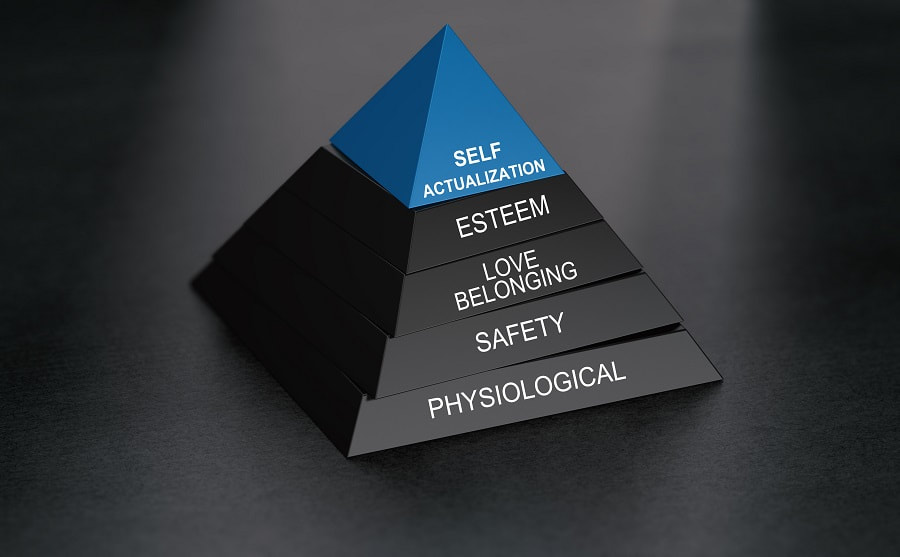|
,
Envy is the misunderstood emotion, often mistaken for jealousy, its mutually baleful sibling. There is a difference. When we are jealous, there is a third party involved, e.g., I feel threatened by Sue’s feelings toward Jared. When someone, anyone, whose positive feelings such as attraction, admiration, or love, toward someone else threatens our receiving the same from those persons we feel jealous. Or it may simply stir in us that which we might feel insecure about in ourselves. Envy, on the other hand, is a two-party emotion. I want, e.g., power, beauty, wealth, good fortune, etc., what someone else has. These two emotions are often confused partly because sometimes both emotions are activated by a given situation. For example, I feel jealous about Sue’s feelings toward Jared because he has certain qualities I believe I lack which makes me feel envious. Feelings of jealousy can elicit feelings of envy and vice versa. It can be complicated. The psychological sources and effects of envy Where does envy come from? Mankind has acknowledged envy’s destructive influences since the beginnings of civilization. We find envy in Moses’s ten commandments and identified as one of the seven deadly sins by Pope Gregory I in the sixth century. In the twentieth century, the object relations theorist, Melanie Klein, proposed that envy develops in malevolent opposition to gratitude beginning with the infant’s relationship to its primary caregiver. According to Klein, when the infant’s needs are frustrated, destructive impulses ensue. Envy develops from the impulse to destroy something someone else possesses, in this case the caregiver’s love and comfort, if it isn’t shared or offered. Gratitude arises instead when the relationship with the desired “object” is generous and offers gratification. While Klein believed these emotions arise from innate drives, one needn’t accept this is true to understand the logic behind how this emotion arises out of relationships that begin with our primary caregivers. Envy potentially exists in any given relationship but is especially problematic when it develops between a parent and child. The child’s envy toward its parent is presumably the source for patricide in the classic Greek play, Oedipus Rex, that inspired Freud who regarded the resolution of this conflict as the crucial rite of passage in order to achieve psychological maturation. According to Freud, resolution is achieved when envy and jealousy are replaced with identification with one’s rival, in this case one’s parent. Envious rivalry between mothers and daughters and from a parent toward its child, on the other hand, is portrayed in children’s stories about witches, beldams, and aging beauties. The sociopolitical influences and uses of envy Envy has also been identified as a source of influence in society at a broader scale. Philip Cushman, in his book, Constructing the self, constructing America (1995), has proposed that a capitalist society such as the United States manufactures feelings of insecurity such as envy, what he calls “the empty self,” in order to promote its economic agenda to sell products, including popular self-improvement books and instructional programs, even psychotherapy, to its constituents. What more compelling case for Cushman’s claim is there than what is found today from the effects of social media on the internet and the recent congressional investigations and revelations from the Facebook whistleblower, Frances Haugen? It has been proposed by others such as the sociologist, Helmut Schoeck, in Envy: A theory of social behavior (1966), that liberal political systems of modern civilization, such as democracy and communism, were generated as a common force in society for the purpose of diminishing feelings of envy by those less able to enjoy the benefits of wealth and prosperity among its members. Schoeck’s contribution was to propose envy as the source of a common critique of so-called liberal political systems based on the rationale that they promote mediocrity. These critiques of collectivized liberalism may also be found elsewhere from such disparate theorists as the psychologist, Raymond Cattell, who in his “law of biosocial coercion toward the mean,” decried the leveling influence “the environment” may have on innately determined capacities such as intelligence and personality, the existentialist philosopher, Friedrich Nietzsche, who took a jaundiced view of the influences of sacred institutions of civilization, such as religion and science, on human potentials, and for the 19th century journalist, Herbert Spencer’s Social Darwinist ideas that led to the eugenics movement. Even the sentiments of erstwhile presidential muse, Steve Bannon, represent further examples of those who have made claim to the stunting effect such political systems can have on a society to which Schoeck attributes envy as the culprit. A more generous reason given for liberal political systems such as democracy and socialism would, of course, posit man's basic goodness to create a more altruistic, egalitarian society; a more sanguine perspective on capitalism would acknowledge how it promotes industry, initiative, and progress. Regardless of one’s political sentiments, in either case, envy has been identified by some experts as a malignant influence that either can inhibit human potential or exploit human behavior even at a broader, societal level. How do I deal with feelings of envy? Here are some tips if you are struggling with envy:
0 Comments
Life is hard. We can be busily caught up with our responsibilities of life, our jobs, our families, daily chores and obligations, so that when we do, we long for time to relax, kick our feet up, and savor the freedom not to oblige these dictates. Experts tell us to develop a sense of mindfulness to help us appreciate being in the moment. We live in a culture that extols the virtue of hard work, too often to the detriment of our personal needs and concerns; mindfulness, like other remedies to soothe our aching souls, serves as an antidote to these cultural presses. They may indeed help us to counter the effects when hard work and effort become meaningless or oppressive. For some, however, hidden beneath the renunciation of hard work may lurk a hidden defense that colludes against facing the challenges of life necessary for us to become all we have the potential to be.
Is It Necessary to Live Up to Our Potentials? In his classic text, The Protestant Ethic and The Spirit of Capitalism, the 19-century sociologist, Max Weber, wrote about how our nation’s politico-economic system was driven by the Calvinist religious philosophy that hard work pays off in the afterlife. Since then, religion has lost its cache as a driving and integral part of our culture. Capitalism has become secularized and thereby sustained itself on an alternative ethic of self-actualization, an apostasy in a hitherto Christian-centric world. Self-actualization, a psychological concept first popularized by the humanist psychologist, Abraham Maslow, promised a hopeful and “positive” alternative to the assumptions about the baseness of human nature offered by Freud and the dehumanizing conceptualizations of behaviorism. However, when the institutions, such as family, community, and religion, that otherwise can sustain an individual’s quest to become themselves begin to fragment, or even disintegrate, a culture of narcissism and anomie emerges instead. Without investments in communal purposes that transcend self-interest, the quest to become all we can be is stripped of character by the narcissistic imperative to be better than or to have more than, etc. The Greek philosopher, Aristotle, believed that living life to its fullest doesn’t merely improve one’s quality of life, it is an ethical responsibility we have to ourselves to live in accord with this principle. Without doing so we are cheating ourselves of all we are gifted to use to make the most of our lives. Self-actualization enhances the quality of ours and the lives of others. Narcissism, on the other hand, distorts this philosophy of self-care to one of self-aggrandizement. Eventually, the vacuousness of this philosophy of life leads to disillusionment and disappointment. How We Turn Away from Reaching Our Potentials Some people choose, consciously or not, to turn away from the quest to be all one can be to follow the path of settling into a life of “quiet desperation.” This may take many forms, such as what we sometimes disparagingly refer to as the “worried well.” I see many of these patients in my office, people who by all accounts appear normal, happy, well adjusted, but miserable, anxious, and depressed inside. Who would know? The price one pays for “settling” for a life not fulfilling. Many use addictions to assuage the pain of this pact of resignation with life but there is no escape without coming to terms with the fact of it. The challenge of the psychotherapist for those who live beneath their potentials is to address the patient’s defenses against confronting this issue in themselves. Here are some of these kinds of defenses:
It is necessary to work diligently and to take risks in order to reach our potentials. It can be daunting when we look at our goals from the perspective of where we are now in relation to where we want to be. For this reason, following basic principles such as setting modest goals toward reaching grander ones, being accountable for our intentions, and mindfully becoming appreciative for what we may be grateful for help make the quest to reach our potentials reachable. Our relationships with our parents and our children can be complicated, difficult, and at times strained whilst these relationships largely are regarded, across history and cultures, as relatively sacred. They form the foundation for the stability of the family and its potential legacy for the future. In recent times, however, a trend has been developing as noted by psychologist, Joshua Coleman, who specializes in the treatment of estranged families, where this sacred bond is being threatened. In a recent article published in The Atlantic (January 10, 2021), titled A shift in American values is fueling estrangement, Coleman reports that more and more adult children today are estranging themselves from their parents. Why is this?
Historical Influences Since World War II, the United States has enjoyed a level of affluence associated with having achieved status as a supreme world power. But the price of this affluence along with the mechanization of industry and the burgeoning of the corporate world has cost society the stability of social institutions such as family and organized religion it has hitherto relied upon as sources of identity, values, and morality. According to psychologist and historian, Philip Cushman (Constructing the Self, Constructing America, 1995), Post World War II United States has commodified our relations with ourselves, resulting in an elevation of the self as bounded and hence less invested in our relationships and responsibilities to one another. This increasing isolation of our identities and values on which the self is predicated in the past several generations has been the subject of concern cited during this time period by social scientists such as Riesman, Glazer & Denny (The Lonely Crowd, 1950), Jules Henry (Culture Against Man, 1963), Christopher Lasch (Culture of Narcissism, 1979) among others. The empowerment of the self that resulted from these changes in society coincided with cultural shifts in gender roles and reckoning with racial issues, the emergence of a more psychologically-minded populace, and identity politics. The culture wars that have ensued have understandably strained relations between these groups, including those between parents and their adult children whose values reflect these differences between them. As one of the consequences from the influence of these cultural changes on the family, not coincidentally, divorce has become commonplace. Current Family Trends In a more psychologically-minded generation that places greater value on the sanctity of the self and its concerns, such as self-esteem, self-other boundaries, and the denigration of dependency in relationships, and that, moreover, is less beholding to the sanctity of the conventions of marriage and family, adult children have become less respectful of the authority that traditionally has held families together. At the same time, the attenuation of the marital bond associated with an increased divorce rate has created a shift in the alignment of devotion within family relationships such that boundaries between parents and children have become more diffuse. Thus, we see more “helicopter parents” and enmeshment in families that crosses generational boundaries. As Coleman points out, this “. . . creates a higher dependence by parents on their children to substitute for the loss of a spouse,” in other words, parents who want their children to be their best friend. At the same time, an exaggerated importance given to their children by such parents may contribute to narcissistic trends in the younger generation. It is a paradox that greater enmeshment between parents and children often results in children themselves setting boundaries from their parents instead. Even when this doesn’t occur, parents may alienate themselves from their children by unwittingly enlisting their children in marital battles to leverage divided loyalties as often can happen in families of divorce. The upshot of all this results in adult children inclined to blame their parents for their difficulties while failing to develop a sense of faith in themselves instead. Estrangement often results from the dynamics of these dysfunctional cross-generational relationships. Parents are left feeling they have raised ungrateful children while children feel exasperated with “clueless” parents. What are the Solutions? For parents of estranged adult children, it is important to listen to their children’s grievances even if they don’t agree with their reasons for them. Acknowledging their role in creating the reasons for their children’s grievances, when sincerely granted, can undoubtedly pave the way for rapprochement to follow even if it isn’t guaranteed. However even when an agreement cannot be reached, open communication may be all that is needed, a solution that could address what might have been part of the problem in the first place. Respecting boundaries when reasonable helps the adult child feel heard and grants the “sovereignty of self” adult children may be seeking in order to feel that their status as an adult is recognized. Parents are advised to seek their emotional intimacy needs elsewhere when cross-generational enmeshment is the source of the problem. For adult children estranged from their parents, it can be helpful to distinguish between situations where their issues reside in the past, such as when they were raised as children, from problems that are current or ongoing, such as when dealing with a “difficult” parent. When grievances about the past are at issue, validation of experience would be ideal. However, more often than not, when this isn’t forthcoming, once again, the goal should be to be heard and, if not one’s memories is possible, to have one’s feelings validated. In either case, such discussions are inherently difficult. Two books that offer advice about how to prepare for these discussions are Difficult Conversations: How to Discuss What Matters Most (1999) by Douglas Stone, Bruce Patton & Sheila Heen, and Crucial Conversations: Tools for Talking When Stakes Are High (2012) by Kerry Patterson, Joseph Grenny, Ron McMillan & Al Switzler. |
Robert Hamm Ph.DPsychologist Archives
June 2023
Categories |



 RSS Feed
RSS Feed